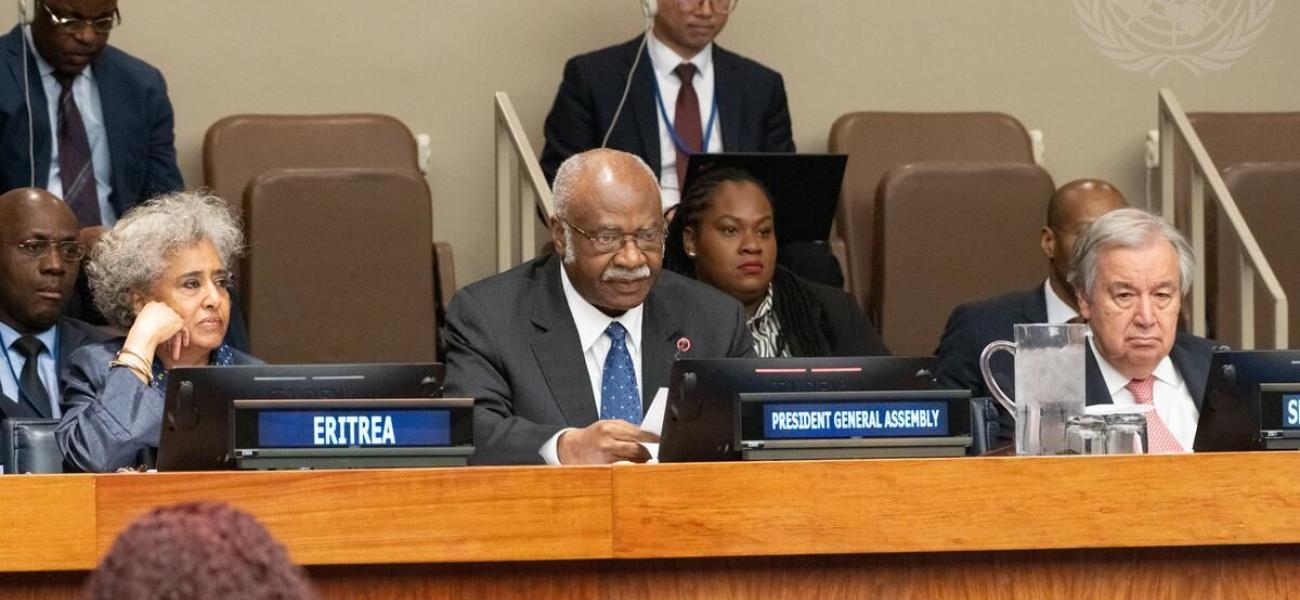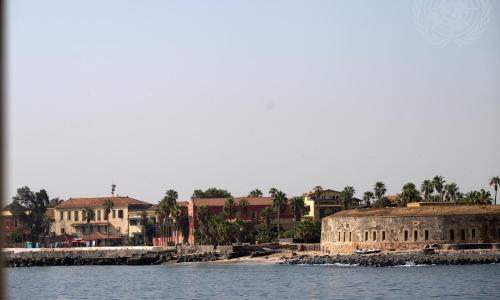Leaders at the ADS2025 High-Level Dialogue called for reparatory justice through global governance reform, debt relief, climate action, and the return of looted heritage.
“We point to the poisoned legacies of enslavement and colonialism, not to sow divisions but to heal them,” UN Secretary-General, António Guterres remarked at the concluding event of the African Dialogue Series 2025. “Now is the moment to turn recognition into rights, apologies into action, and aspirations into accountability.”
That demand - for reparatory justice - took center stage at the conclusion of the Africa Dialogue Series at the United Nations in New York.
This year’s event was held under the banner of the African Union’s theme for the 2025 —"Justice for Africans and People of African Descent Through Reparations."
During the High-Level Political Dialogue senior UN officials, African leaders, and representatives from the Caribbean and the global diaspora advocated for redress of the legacies of slavery, colonialism, and systemic racism, in ways that the redresses are just, lasting, and transformative.
An injustice that still shapes the world
For more than four centuries, over 12 million Africans were taken from their homelands, enslaved, and subjected to brutal exploitation. The end of colonial rule did not erase the systems built to extract, exclude, and oppress. Instead, many African nations inherited institutions designed to serve imperial interests, not national development.
“When African countries gained their independence, they inherited a system built to serve others — not them,” Mr.Guterres emphasized.
Today, those same structural injustices persist and manifest in underrepresentation in global decision-making, debt traps and unfair trade regimes, racism embedded in social, legal, and economic systems and climate vulnerability despite negligible emissions, participants recognized.
Reparatory justice: more than money
A central theme that emerged from ADS2025 is that reparations must be multi-dimensional. The goal is not simply financial compensation—it is structural transformation.
Reparations are not just about the past. They are about the dignity of the present and the direction of the future.
At the high-level meeting, speakers called for reparatory frameworks to include legal redress and institutional reform; cultural and educational restitution; psychological healing and memorialization; and economic and environmental justice.
Core advocacies
Global governance: Africa’s marginalized role in international institutions like the UN Security Council continues to limit its voice on critical global issues. Permanent representation and voting reform are essential to redress historical exclusion and promote meaningful multilateralism. The future cannot be fixed with institutions designed in the past, many speakers pointed out.
Climate and economic justice: With Africa contributing less than 3% of global carbon emissions, yet facing the harshest climate impacts—drought, floods, food insecurity, and displacement, speakers emphasized full capitalization of the Loss and Damage Fund; $40 billion/year for adaptation finance; investment in Africa’s clean energy leadership, where it holds 60% of the world’s best solar potential—but only 1.5% of installed capacity.
On the economic front, debt servicing is draining public budgets and undermining development. The High-Level Dialogue called for fairer lending terms, restructuring mechanisms; and scaling up multilateral development bank capacity.
Cultural and intellectual sovereignty: calls to return looted African artefacts and human remains were reinforced by demands to revise curricula globally, placing African history, resistance, and innovation at the center. Initiatives like the Ark of Return and growing university-led restitutions show that symbolic justice has a place—but must be paired with systemic change.
“Cultural restitution is equally central to this agenda, and we fully support ongoing African-led processes to return looted cultural heritage and human remains,” Mahmoud Ali Youssouf Chairperson of the African Union Commission observed.
Strengthen diaspora and South–South cooperation
The ADS2025 dialogue made a strong case for leveraging the global African diaspora to amplify advocacy, solidarity, and investment. Empowering Afro-descendant women and youth was highlighted as essential to the future of reparatory justice.
Despite growing skepticism toward multilateralism and rising economic nationalism, the High-Level Dialogue affirmed that reparatory justice is gaining momentum. Governments, civil society, and institutions are joining the call. The upcoming Financing for Development Conference in Sevilla, Spain was identified as a key opportunity to push for a fairer international tax regime, a stronger domestic resource mobilization and concerted action against illicit financial flows.





